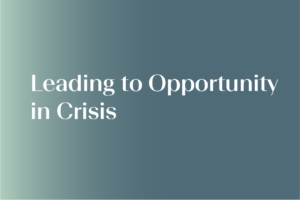In the dynamic modern business landscape, leaders are tasked with setting the tone for organizational culture as much as they are with guiding their teams through myriad challenges and critical decisions. Candor emerges as indispensable. Without it, organizations struggle to communicate openly and productively, crippling their ability to grow, thrive, and sustain through any volatility. Today, candor is not just a “nice to have”; it is a critical component of successful, ethical, and lasting business. Before we explore the multifaceted importance of candor and its impact on leaders, teams, and entire organizations, let’s define what we mean by candor and what it means in business today.
Candor in professional settings has evolved significantly over the past two decades. It is not merely about honesty or directness. Candor involves being open and honest with due care. Let’s examine some key shifts that have reshaped how we understand, practice, and value candor in today’s business environment:
Candor and Transparency
Organizations now must be open about their operations, products, and practices as transparency demands rise. This demand boosts the need for candor as employees, customers, investors, and the public become more discerning with their trust and support.
In contrast to traditional, distant leadership styles, modern paradigms value vulnerability and authenticity. Leaders who candidly share their challenges and uncertainties foster open communication throughout the organization.
- Introduction of Flat Organizational Models The shift from hierarchical to flatter, more collaborative structures has changed interaction dynamics across all levels. This shift empowers employees to voice their opinions and ideas, fostering a culture of open communication and cooperation.
- Pervasive Impact of Social Media Social media has transformed information sharing, consumption, and scrutiny. Businesses face constant public observation, enhancing the importance of truthful and transparent communication. In contrast to past practices of silence as damage control, today’s technology pressures companies to respond honestly and timely.
- Rise of Globalization and DEI Initiatives Globalization requires leaders to navigate diverse cultural contexts and communication styles. Organizations must balance cultural sensitivities with openness and honesty.
As workforces become more diverse, diversity, equity, and inclusion (DEI) initiatives have become central to business strategies, further emphasizing the importance of candor. Candor supports an inclusive environment where diverse perspectives are heard and valued.
Genuine candor is not just about speaking up; it’s about fostering an environment where everyone feels safe to do so. It involves approaching conversations with curiosity rather than judgment and bias.
Now that we understand the evolving context of candor, we can appreciate its critical role in leadership and business:
Building Trust: Candor is the cornerstone of trust. Leaders who communicate transparently demonstrate integrity and show they value honesty over superficial harmony. This fosters an environment where team members feel safe to express themselves, enhancing team cohesion and productivity.
Encouraging Innovation: Innovation flourishes. Leaders who foster open dialogue and value diverse perspectives cultivate creativity. This makes employees more likely to share unconventional ideas, knowing they will be considered thoughtfully.
Catalyzing Inclusion: Candor invites diverse contributions, enriching innovation and resilience. An inclusive environment nurtures a rich tapestry of ideas and approaches, driving sustainable success.
Navigating Complex Challenges: It helps leaders handle complex decisions by ensuring all relevant information is considered. This transparency allows for effective decision-making and course corrections.
Promoting a Growth Mindset: Leaders who practice candor encourage continuous learning and self-improvement, leading to a more adaptable organization.
Mitigating Risks and Nurturing Accountability: It enhances risk management by encouraging open communication about potential vulnerabilities. This proactive approach fosters accountability and swift resolution of issues.
Effective leadership is pivotal for organizational success, with candor at its heart. Embracing candor equips leaders to build trust, spur innovation, include diverse perspectives, and navigate challenges adeptly. This not only creates a growth-conducive environment but also ensures the organization is resilient and poised for long-term success.






